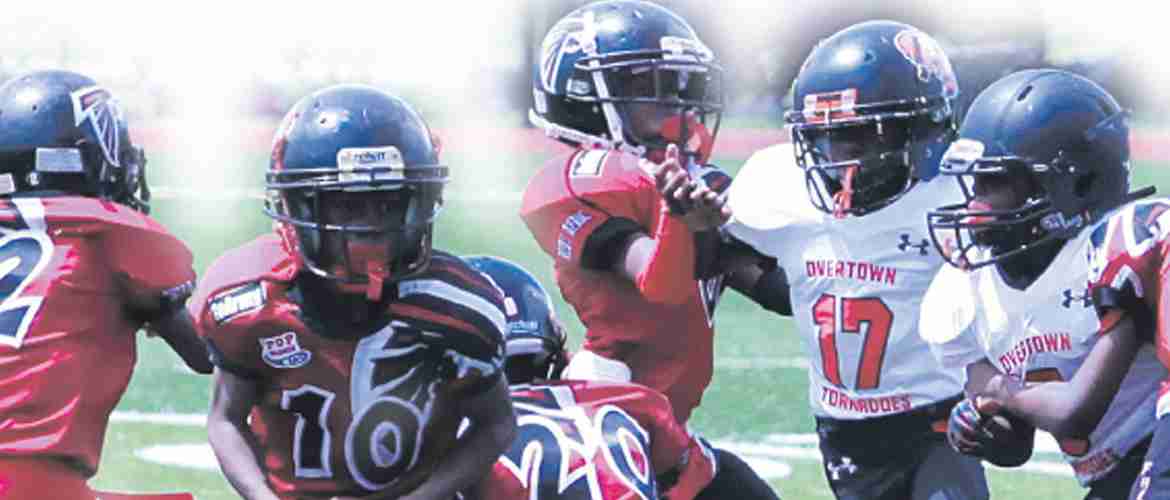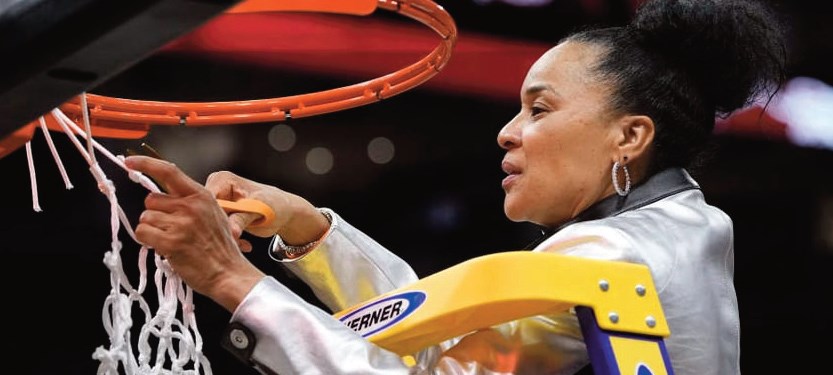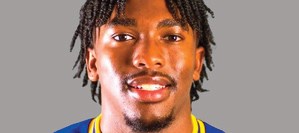By JARRELL DOUSE
Special To The South Florida Times
MIAMI — Although it’s been decades since Interstates 95 and 395 sliced through Overtown, the residual effects of the highways’ construction on the once vibrant community linger. The low income, high crime neighborhood is a challenging environment for children, making programs like the Overtown Tornadoes Optimist Club football team a lifeline for many young black boys in need of alternative activities.
So when threats to relocate the sports program from its current Williams Park location to either Gibson or Moore parks surfaced, Emanuel Washington, the Tornadoes’ executive director, said the move could result in many of his players dropping out of the program due to transportation problems. The players are able to walk to Williams Park, the Tornadoes’ home field.
Washington is breathing a sigh of relief after meeting on Sept. 19, with Assistant City Manager Nzeribe Ihekwaba and other city officials in effort to “clear the air” between the Tornadoes and the city’s Parks and Recreation department.
What appeared to be efforts to run the team away by shutting off the park’s lights before many of the youth headed for home, demanding the relocation of the team’s blocking sled to another park (where it was stolen); or the construction of an asphalt walking path through the end zone, Washington now characterizes as “failed communication, misunderstandings.”
Ihekwaba confirms, “As at this time, there are no anticipated changes either of the existing or future programs offered by the Optimist Club or any other entity in our parks. However, the city will schedule an outreach meeting with the local residents and program providers, beginning with the Optimist Club, to further address any concerns of interest that will help with program improvement. Also, the city is looking into streamlining the parks programming process for consistent and enhanced guidelines for existing and future third-party programs in our parks. This will provide for program standards and miscellaneous requirements.”
Eboni Chatman, a Miami Beach Police Department employee and executive director over cheerleading has been volunteering with the Tornadoes for 12 years. She said that giving back to the community is a mandate.
“It is real out here, man. There is so much that these kids can get into after school.”
Moving the kids from Williams Park would have been “tragic,” she said.
“Most of them live within walking distance—we try to keep our eyes on our kids.”
Washington echoes Chatman’s sentiments.
“There is an on-going war when it comes to saving [our] children, especially black boys. The Tornadoes wanted the city to be mindful of what we’re facing, that we’re dealing with life-altering situations daily.»
He added, “Communities like Overtown and Liberty City, Little Haiti, Goulds and others rely on these programs to help keep kids productive. If people think it’s bad, now, add 5000 misguided youth to the population and you will really have a problem.”
Washington said he’s optimistic.
“Ihekwaba was very instrumental in bringing us all together to listen to both sides; he helped us to identify what the problems were while recognizing the importance of programs like the Tornadoes,” adding, “I feel like a sustained solution is in place. I don’t have a crystal ball to predict the future but, I don’t believe the understanding that we now have is a Band-Aid,” said Washington, a retired firefighter.
“We are trying to make sure this community is a decent place to live because we know that if these kids are not mentored or monitored it’s gonna be off the chain.”













No Comment